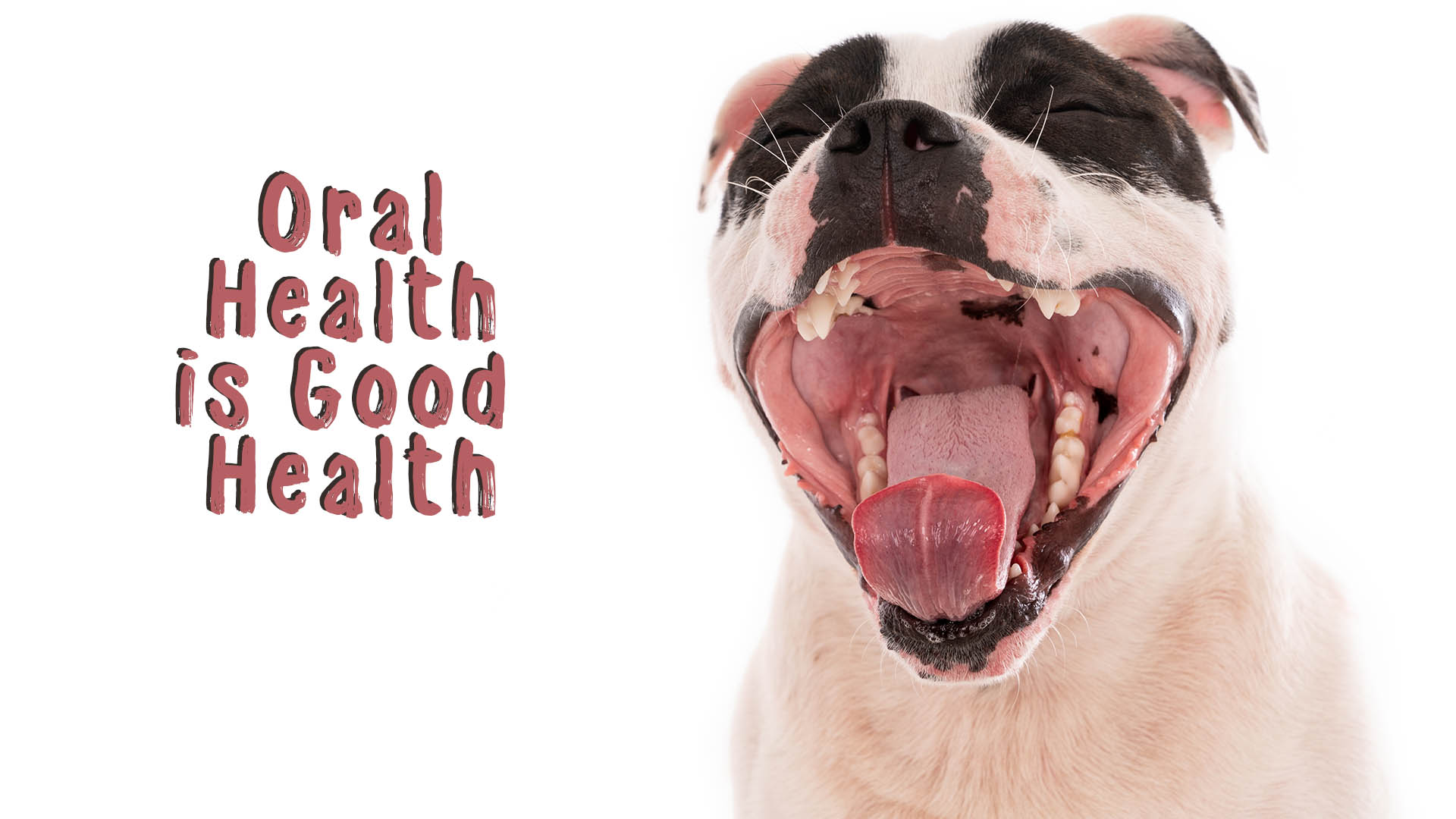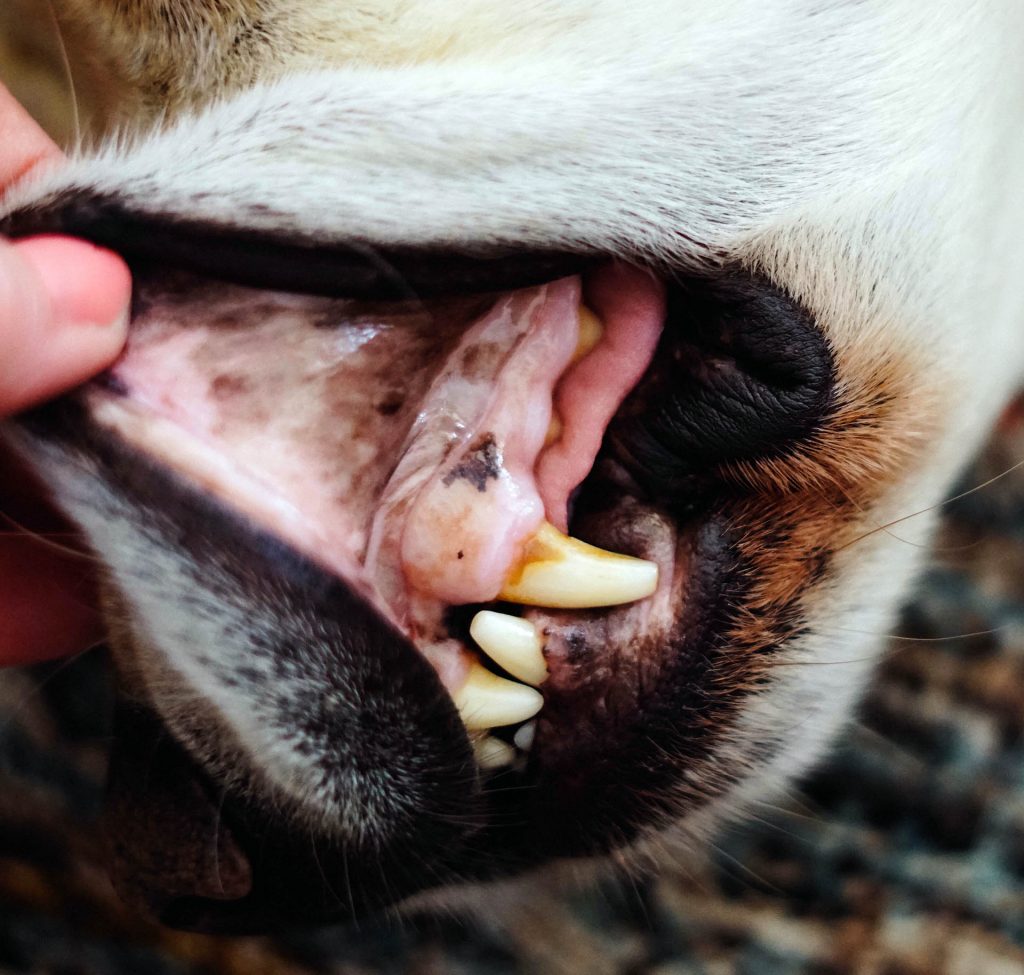In the heartwarming tapestry of life with our furry companions, each wagging tail and joyful leap at the door weaves a story of unconditional love and loyalty. These moments, fleeting yet profound, remind us of the deep bond we share with our dogs. But beyond the cuddles and playful games lies a responsibility that extends to the very essence of their well-being: their health, mirrored in the sparkle of their smile.
The connection between diet and oral health, long established in human medical science, is a tale as relevant to our canine friends as it is to us. Emerging research underscores a compelling narrative: the food and treats that fill our dogs’ bowls do more than satisfy hunger—they sculpt the health of their teeth and gums and, by extension, their overall vitality.
Just as we brush and floss to ward off the specters of plaque and tartar, our dogs rely on us to chart a course for their oral hygiene. The simple act of brushing their teeth or even wiping their gums with a clean cloth stands as a testament to our commitment to their health. Yet, the cornerstone of this endeavor lies in the choices we make at the pet food aisle.
The debate between canned and dry dog food is more than a matter of convenience; it’s a decision that impacts our dogs’ dental health. Dry kibble, with its hard texture, acts as a natural toothbrush, scrubbing away plaque with each bite. This benefit vanishes, however, when the kibble is softened with water or gravy, turning a dental tool into a mushy meal.
Treats, often overlooked as mere indulgences, play a critical role in this oral health odyssey. The selection of snacks for our dogs should be as deliberate as our own. From bones to rawhides, from jerky treats to dental chews, each offers a different outcome in the battle against tartar and bad breath. Yet, amidst these choices, the quest for balance prevails—treats that clean but also nourish, that delight without empty calories.
This narrative of nutrition and care is not just about preventing bad breath or dental diseases; it’s about embracing a holistic approach to our dogs’ health. A diet rich in essential vitamins, nutrients, and enzymes lays the foundation for not just a sparkling smile but a life filled with more wags, more leaps, and an unbreakable bond.
5 Tips to Improve a Dog’s Oral Hygiene
Improving your dog’s oral hygiene is crucial for their overall health and well-being. Here are five effective tips to ensure your furry friend’s mouth stays healthy:
- Regular Brushing: Just like humans, dogs benefit greatly from regular teeth brushing. Aim to brush your dog’s teeth daily, but if that’s not possible, try for at least three times a week. Use a toothbrush designed for dogs and toothpaste that is specifically formulated for canine use, as human toothpaste can be harmful to your pet. This routine helps remove plaque and prevents the build-up of tartar, warding off bad breath and gum disease.
- Dental Treats and Chew Toys: Incorporate dental treats and chew toys into your dog’s routine. These products are designed to help reduce plaque and tartar build-up through the natural action of chewing. Look for treats and toys that have received a seal of approval from veterinary dental associations. Remember, while these are beneficial, they should not replace daily brushing.
- Professional Dental Cleanings: Schedule regular dental check-ups and cleanings with your veterinarian. Professional cleanings are the only way to remove tartar build-up and assess the health of your dog’s mouth thoroughly. Your vet can also spot early signs of potential problems and address them before they become serious.
- Healthy Diet: Feeding your dog a balanced, high-quality diet can contribute to better oral health. Some pet food brands offer dental health formulas that can help reduce plaque and tartar build-up. Dry kibble is generally better for your dog’s teeth than wet food, which can stick to the teeth and promote plaque formation.
- Water Additives and Dental Sprays: Consider using water additives or dental sprays designed to promote oral health. Water additives can help reduce plaque-forming bacteria, and dental sprays can freshen breath and reduce bacteria on contact. Always choose products that are specifically made for dogs and follow the recommended guidelines for use.
By incorporating these tips into your dog’s care routine, you can significantly improve their oral hygiene, leading to a happier, healthier life together. Remember, oral health is a crucial component of your dog’s overall health, so never hesitate to consult with your veterinarian for personalized advice and recommendations.
As stewards of our dogs’ happiness and health, we are tasked with making informed choices that echo our love and commitment. In the end, the path to ensuring our best friends’ smiles remain as joyful as their greetings at the door is paved with knowledge, care, and a deep understanding of the link between their diet and oral health. Let us embark on this journey with the same joy and enthusiasm our dogs show us every day, for in their health lies the reflection of our love.



